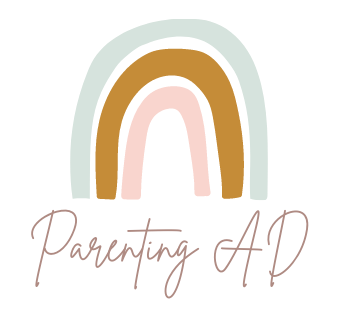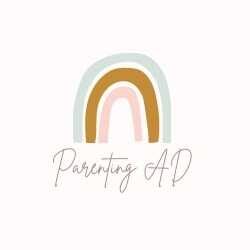Simple Guide to Parallel Parenting

This post discussed the advantages, disadvantages, and some tips on parallel parenting to help you adopt this strategy effectively. It also provides a comparison between co parenting and parallel parenting plans.
What is Parallel Parenting versus Co Parenting?
For most people who are going through a divorce, amicable divorce appears a situation far from reality. With conflicts, emotions, and difficult transitioning procedures; it seems that divorce is a word synonymous with conflict.
Plus, it’s not a civilized, peaceful conflict you run into in your day-to-day life and definitely not the one you want your children to witness and be impacted by.
And you fear this impact. After all, you often fail to contain your emotions when you are in the same room with your soon-to-be ex. How can you help them navigate this transition peacefully when your emotions – and those of your ex – keep creeping into the arguments?
Parallel parenting is an answer.
While co-parenting is the most nurturing solution for children of divorced parents, parallel parenting is a safer solution that protects them from the parents’ emotions around divorce.
And this technique is not limited to the period that follows immediately after divorce. You can also apply in later stages of co-parenting if conflicts remain unresolved and emotional. Plus, this is the most suitable parenting solution to parent alongside a narcissist ex.
Let’s learn more about this strategy in this post.
Parallel Parenting Definition
If you are still healing from the difficult emotions of divorce or if the two of you are unable to agree on a parenting plan, parallel parenting is the solution you should adopt. You may also use it to minimize the emotional harm a narcissist co-parent can inflict on you and your children when they are at your place.
It’s founded on the basic principles of limited communication and more autonomy.
Each parent is allowed to make day-to-day decisions for children. Major decisions, however, are still decided with mutual agreement.
Co parenting vs Parallel Parenting
Co-parenting is characterized by a higher level of communication to decide in children’s best interest, working together, and advocating for them collectively. Parents have learned to civilly manage their differences and model healthy conflict management patterns to kids.
Related article: What is co parenting?
Parallel parenting limits the communication between both parents. They decide for the children separately and their individual parenting tools apply when children are at their home. They also have little control over the decisions on children’s lifestyle when they are at the home of the other parent.
When is Parallel Parenting Effective?
Note that parallel parenting is a coping mechanism and not an ideal solution. If you have gone through a mutual divorce, you should get back to co-parenting within a few months after the transition. This is the healthiest and most nurturing solution for your kids as they will get the opportunity to witness their parents set their own agendas aside for the benefit of their kids.
But the situation is not always ideal for divorced couples – especially when a narcissist is involved or when you cannot agree on parenting strategies. In those situations, you resort to parallel parenting to prevent children from witnessing these arguments with all their intensity.

Benefits of Parallel Parenting Plan
For some divorced parents, parallel parenting is the only solution to keep children away from their adult issues. Here are a few reasons this technique is supported by parents in place of co-parenting.
It allows them to remain peaceful and minimize drama. If you cannot encounter your ex without feeling resentment and anger, it’s better to minimize these encounters using parallel parenting. It will protect you from stress and your emotional transition out of the relationship will speed up.
This improved healing should also reflect in better vibes at your home making your children more emotionally nourished and at peace.
In addition to this indirect influence from your peace of mind, the children also don’t feel the need to take sides with one of their parents. By eliminating the conflicts, you allow them to not share your emotions of resentment and anger for the other parent. They will not feel negativity at the only place that is meant to showcase a healthy family environment to them.
Because they will not be carrying your – or your ex’s – emotional burden, they will be less stressed and more capable of growth.
Cons of Parallel Parenting
Don’t forget that parallel parenting is just a coping mechanism you can use to limit the conflicts that will arise in co-parenting situations. Like any other coping mechanism, it has its disadvantages.
The most obvious of these disadvantages is that the children will have to live two separate lives. They will follow one set of routines at one home and another one at the other. They will have to keep changing their schedules to blend in and it will impact their discipline and habits. They may not develop concrete habits because of constant change.
Plus, they will witness contrasting parenting beliefs. This will be especially difficult for them if your co-parent is a narcissist. In that case, children will learn different communication patterns, sets of life skills, and beliefs about self and the world in both homes.
Confusion will remain at the forefront of their mind growing up. In any case, this confusion is an integral part of raising children with a narcissist. The only way you can cope with it and allow your children to grow out of it is to model healthy patterns, skills, and beliefs and hope that they will follow you in their life choices.
Tips for Effective Parallel Parenting
- Use only one medium of communication. If email is the mutually agreed medium, refrain from responding to their texts. Avoid face-to-face or on-call communication.
- Don’t engage or respond to their emotional attacks. If these attacks escalate to physical threats, report to the relevant authority promptly. Try using techniques like gray rocking and DEEP where their emotional jabs are manageable.
- Keep the communication business-like and on the topic. You are not required to respond to their non-issues.
- Attend children’s events alone without the other parent accompanying you. Let them do the same for other events in children’s life.
- Stop worrying about matters that aren’t in your control. Let your ex have the reign at their home without you deciding on kids’ activities for those stays.
Related Article: The Best 7 Co Parenting Apps Reviewed
The Bottom Line
Parallel parenting is a coping strategy that is aimed at minimizing harm to the children while allowing them the comfort and safety of having both parents working together to raise them. It keeps the element of working together and collaboration minimal to avoid conflict.
Other Resources


